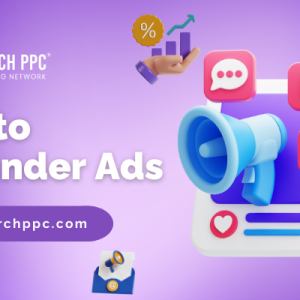Affiliate marketing has become a game-changer for e-commerce businesses looking to expand their reach and increase sales. By partnering with the right affiliate networks, businesses can effectively leverage the power of third-party marketers to drive traffic and boost revenue. But with so many affiliate marketing networks out there, how do you know which one is the best fit for your e-commerce business?
In this guide, we’ll explore the 10 best affiliate networks and platforms for e-commerce, comparing their features, commission models, and ease of use to help you make an informed decision.

What is an Affiliate Network?
Affiliate networks are platforms that connect e-commerce businesses with affiliates who can promote their products. These networks provide tools and analytics to help track sales, clicks, and performance, and they offer a range of commission models, including PPC affiliate commissions (pay-per-click), CPA (cost-per-action), and CPS (cost-per-sale).
Affiliate networks make it easy for businesses to find the right affiliates for their brand and for affiliates to access high-quality offers. Let’s take a look at some of the best options available today.
10 Best Affiliate Networks and Platforms for E-commerce
Amazon Associates

Amazon Associates is one of the most popular affiliate marketing networks globally, and it’s ideal for e-commerce businesses that want to tap into Amazon’s extensive range of products.
Key Features
- Massive product selection: Affiliates can promote millions of products across all categories.
- User-friendly: Simple tracking and reporting tools make it easy to monitor performance.
- PPC affiliate commissions: Commissions are based on product category, generally ranging from 1% to 10%.
Pros and Cons
- Pros: Trusted brand, vast product catalog, high conversion rates.
- Cons: Low commission rates in some categories, shorter cookie duration (24 hours).
7Saerch PPC

Affiliate marketing is a performance-based marketing strategy where you earn a commission for promoting another company’s products or services. When someone clicks on your affiliate link and makes a purchase, you earn a portion of the sale.
Key Features
- Large network: Thousands of brands and products across different niches.
- Comprehensive reporting tools: Provides data on traffic, conversions, and commissions.
- Flexible commission models: Offers both CPA, CPC and PPC.
Pros and Cons
- Pros: User-friendly interface, transparent performance tracking, variety of merchants.
- Cons: Limited support for some merchants.

Rakuten Advertising

Rakuten Advertising is a high-performing affiliate network with a strong reputation, especially among large e-commerce brands. Known for its excellent tracking technology, it’s perfect for businesses focused on detailed analytics and reporting.
Key Features
- Advanced tracking: Robust tools for tracking user behavior and conversions.
- PPC affiliate commissions: Performance-based commission structures.
- Global network: Access to affiliates across multiple regions.
Pros and Cons
- Pros: Advanced analytics, great for global reach, trusted by big brands.
- Cons: Can be challenging for beginners due to the complex setup.
ShareASale

ShareASale is a well-established affiliate marketing network with a wide variety of e-commerce merchants. Known for its flexibility and ease of use, it’s suitable for both beginners and advanced marketers.
Key Features
- Large network: Thousands of brands and products across different niches.
- Comprehensive reporting tools: Provides data on traffic, conversions, and commissions.
- Flexible commission models: Offers both CPA and CPS.
Pros and Cons
- Pros: User-friendly interface, transparent performance tracking, variety of merchants.
- Cons: Limited support for some merchants.
ClickBank

ClickBank is a versatile affiliate network known for digital products, but it’s also suitable for e-commerce businesses selling physical goods. ClickBank is ideal for businesses looking for affiliates focused on niche products.
Key Features
- Niche focus: Good for specific product categories and digital goods.
- Flexible payment options: Weekly or bi-weekly payments for affiliates.
- High PPC affiliate commissions: Offers some of the best commission rates in the industry.
Pros and Cons
- Pros: Great for niche markets, high commission rates.
- Cons: Limited product categories for physical goods.
Awin
Awin is a global affiliate network with a reputation for supporting diverse e-commerce businesses. It’s perfect for brands looking to grow internationally, offering partnerships with affiliates worldwide.
Key Features
- Global reach: Over 15,000 merchants in more than 180 countries.
- Comprehensive reporting: Detailed performance analytics.
- Variety of commission models: PPC, CPA, and CPS options.
Pros and Cons
- Pros: Wide reach, excellent tracking, supports small and large businesses.
- Cons: May have higher fees for initial setup.
FlexOffers
FlexOffers offers a robust platform with thousands of advertisers across multiple e-commerce niches. It’s known for its flexible payment structure and has become a go-to option for many e-commerce affiliates.
Key Features
- Variety of niches: From travel to electronics, FlexOffers covers many e-commerce sectors.
- Performance tracking: Offers detailed analytics for both merchants and affiliates.
- PPC affiliate commissions: Supports various commission structures.
Pros and Cons
- Pros: Large catalog of merchants, strong tracking tools.
- Cons: Interface can be complex for beginners.
PartnerStack
PartnerStack is a unique affiliate platform focused on B2B SaaS products. For e-commerce brands offering software or services, this is an excellent option.
Key Features
- B2B focus: Ideal for SaaS and software-based e-commerce businesses.
- Automated payouts: Simplifies payment management for affiliates.
- Advanced reporting: Track conversions and ROI for partner relationships.
Pros and Cons
- Pros: Great for SaaS products, streamlined affiliate management.
- Cons: Limited to software products, not suitable for physical goods.
Impact

Impact is an advanced affiliate marketing network, popular for its flexibility and precision. It’s suitable for e-commerce brands that require tailored solutions and data-driven insights.
Key Features
- Data-rich analytics: Provides performance insights across multiple channels.
- Global affiliate reach: Connects with international affiliates.
- Customizable payouts: Offers customizable commission rates.
Pros and Cons
- Pros: Strong analytics, scalable for large enterprises.
- Cons: Steep learning curve, complex setup.
Pepperjam
Pepperjam is an innovative affiliate network known for its easy-to-use interface and comprehensive tools. It’s perfect for e-commerce brands looking for a well-rounded solution with effective tracking.
Key Features
- Simple dashboard: Easy tracking and performance monitoring.
- Good for small to medium businesses: Great for brands looking for growth.
- Cross-device tracking: Provides tracking insights across devices.
Pros and Cons
- Pros: User-friendly, good tracking options.
- Cons: Not as suitable for large enterprises.
How to Choose the Best Affiliate Network for E-commerce
Choosing the best affiliate network for your e-commerce business depends on factors like your target market, budget, and desired commission structure. Here are some key considerations:
Audience Reach
Look for networks that align with your audience demographics and geographic regions. Platforms like Awin and Rakuten are great for global reach, while PartnerStack is tailored to B2B markets.
Commission Structure
PPC affiliate commissions, CPA, and CPS are popular models. Evaluate the potential returns based on your average order value and preferred commission type.
Tools and Support
Networks like CJ Affiliate and Impact offer advanced analytics, making them ideal for data-driven decision-making. For user-friendly options, Amazon Associates and ShareASale offer straightforward interfaces.
Product Fit
Consider the types of products your e-commerce business sells. Networks like ClickBank are good for niche products, while Amazon Associates is suitable for a wide range of categories.
Conclusion
Choosing the right affiliate network can be a strategic move to enhance your e-commerce business's growth and revenue. By aligning your business model with the right network, you can optimize your affiliate marketing efforts and maximize ROI.
Frequently Asked Questions (FAQs)
What is the best affiliate network for beginner e-commerce brands?
Ans: ShareASale and Amazon Associates are popular choices for beginners due to their simple interfaces and extensive affiliate support.
Which affiliate networks offer PPC affiliate commissions?
Ans: Networks like Awin, FlexOffers, and Amazon Associates support PPC affiliate commissions.
Are there affiliate networks for B2B e-commerce?
Ans: Yes, PartnerStack and Impact are known for their B2B focus, especially suited for SaaS and software-based businesses.
How can I track affiliate performance?
Ans: Most affiliate networks, like CJ Affiliate and Impact, offer robust analytics for tracking conversions, clicks, and revenue generated.
Is it possible to join multiple affiliate networks?
Ans: Yes, many e-commerce brands use multiple affiliate networks to maximize reach, especially when targeting different geographic regions or product categories.










